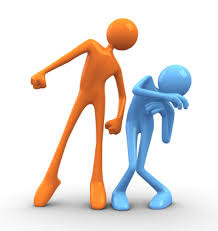A colleague once expressed to me that a saxophonist with whom he was performing was playing so much shit it intimated him and made him not want to play—as though this is something commendable. A word from the wise: If you’re scaring the musicians you’re playing with and not inspiring them. You’re drawing from the wrong musical well.
Let’s look a this from a couple of perspectives.
One observation: Why is it that when we hear certain musicians play, we get inspired and think, “Yes, I can become a great player." While with others, we can feel discouraged and come away thinking “Man, maybe I'll never get my act together.” Some make us want to take our horn out of our case, while others make us want to pack it away.
Second observation: When someone intimidates us, we refer to them in aggressive descriptors like beast, monster, killing, or badass. We say things like “they destroyed it,” or that they “tore it up.” Whereas we refer to those who inspire us in softer terms like original, spiritual, soulful, swinging, moving, or expressive.
For my own taste, I lean more toward inspirational qualities in terms of what I like to listen to and what I like to play. It has taken a long time to come to terms with this too. When one lives in a competitive place like New York City, where competition is fierce, these types of metrics dominate our musical value system. In fact, our whole musical practice is often centered around becoming a beast, killing it, destroying it. Rarely do we pick up our instruments and try to figure out how to inspire, how to move, how to be an original. This is not our culture. This is why players who win competitions—especially jazz--rarely inspire me. Let’s face it, their whole aesthetic is about destroying it. That’s the nature of the game.
Typically, when I hear this type of player, I come away thinking, “Man, I need to practice.” I’ve rarely come away with the feeling of being inspired to play music. It’s funny how I’ve never heard Wayne Shorter and felt I needed to “go home and shed.” If anything, I want to pick up my instrument because I’m inspired.
During my younger and more formative years, I was often accused of being jealous or of hating on some of the more popular players. Ok, I’ll confess, there may have a been some of that. I’m only human. However, at the end of the day, I just did not like what I was hearing. In terms of metrics, I could appreciate their flawless technique, their impeccable time, their never-ending flow of ideas, their basic overall command of the musical situation. But...and this is a BIG but.
I simply was not moved by what I was hearing.
It’s like when you read great book. What makes a book fun to read is not just the author’s command of the language, but his or her ability to tell a compelling story.
Several years ago, I did a tour with one of my bands, and there was another group sharing the bill. The group was excellent. Everyone played great. Very high level, actually. But certainly not moving in any way. I personally don’t criticize for this reason. If it’s not there, it’s not there. I usually deal with what is there. However, during their set, a gentleman sitting next to me asked me what I thought, and I told him that I thought they sounded good—which they did. So, of course, I asked what he thought. And I must say that I was surprised by his answer. He simply said, “Personally, I need a little bit more poetry.”
At that moment, it really dawned on me that it’s ok not to settle for not being inspired or moved. As professional musicians, we sometimes choose not to celebrate these qualities and opt for the latter. This is understandable. Intimidating skill sets are more widely accepted and easier to assess.
All that said, we probably want exude a little bit of both. Maybe we can be spiritual while killing it. Be inspiring while in beast mode. Be original while playing lots of shit. As with many situations in life, both sides often have good points.






